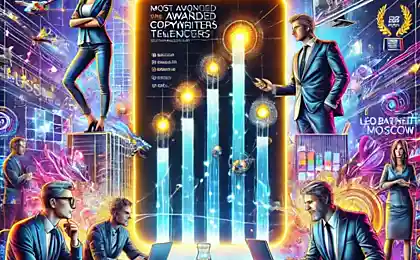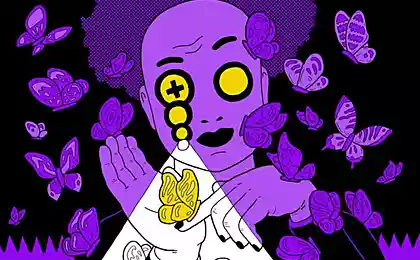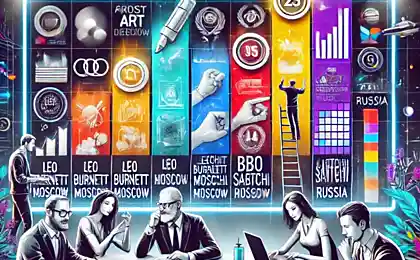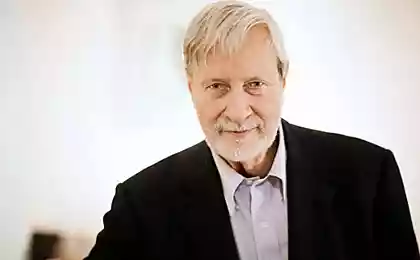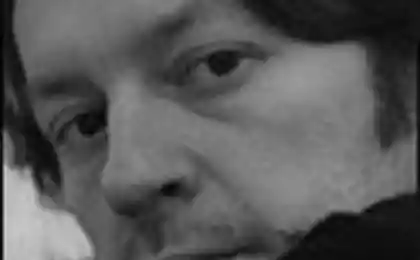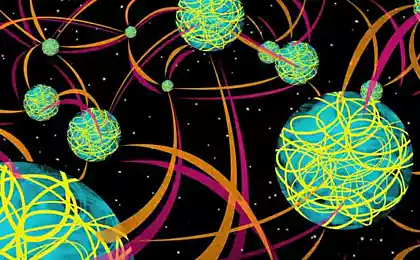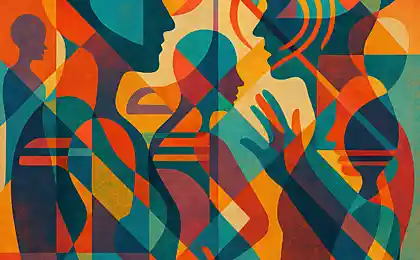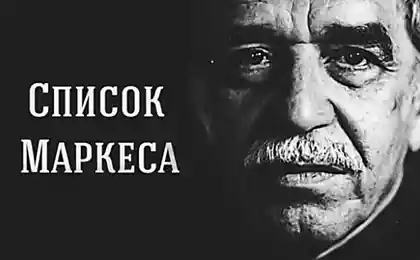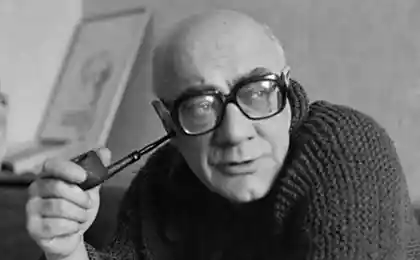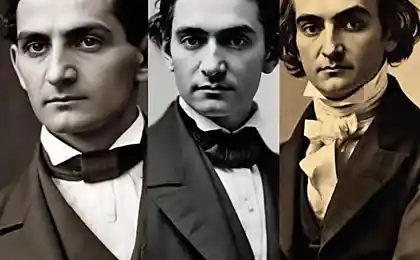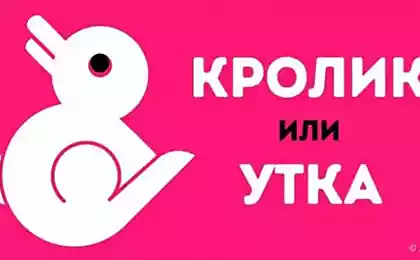588
The happiness of Sisyphus and Kafka totems: 7 books about myths and their interpretation

Why technological progress was not able to eradicate the mythological thinking, and the ancient stories again and again reflected in the literature and life? "Theory and practice" amounted to a selection of books about different aspects of the mythology about how the development of agriculture has affected the image of the mother Goddess, as the heroes of Kafka and Mann are connected with ancient cults and why humanity needs a trickster.
Albert Camus "the Myth of Sisyphus" Not losing the urgency of the essay in which Camus considers the afterlife of the legendary king-the trickster from the standpoint of absurdist philosophy. From the point of view of Camus, Sisyphus is the absurd hero present, eager to live a full life, but doomed to "futile and hopeless labor." However, a heavy burden does not prevent him to find inner freedom, because any predestination is reduced only to how it is judged by the man himself. Camus thinks that life as an ordinary person not much different from the fate of the mythological hero — in fact, the only difference is that, unlike Sisyphus, we rarely realize the absurdity of his own existence.
"This universe, now devoid of Lord, did not seem to him neither sterile nor insignificant. Every ounce of stone, every glint of ore at midnight Woe is the world to him. Struggle itself towards the heights is enough to fill a man's heart. Sisyphus should imagine happy."
Carl Jung and Soul "myth," a Thematic collection of articles in which classic psychology analyzes ancient myths and fairy-tale motifs, listing basic archetypes underlying all ancient legends, the child, the maiden, the Mother, Rebirth, Spirit and Trickster. Latest a separate article, in which Jung explains why the image of "the stunt man" wanders from tradition to tradition, since myths about Hermes and ending with the tale of Tom thumb.
"Any civilized man who is looking for perfection somewhere in the past, should surprise meeting with the figure of the juggler. He is the forerunner of the Savior and, like him, God, man and the animal together. He is both subhuman and superhuman, animal, and divine creation, whose main and most characteristic causes unconsciousness. Thanks to her he removed from his (apparently human) counterparts that show that he fell below their level of consciousness. He is so aware of himself that his body is not unity, and the hands fight with each other."
Eleazar Meletiskii "the Poetics of myth," Monograph of renowned folklorist devoted to the history of myths and their revival in modern Western culture. Meletiskii considering classical myths and discusses the semantics of the mythological story. The most interesting part of the book deals with mythological imagery in the literature of the XX century: from it you can learn about the relation of "Transformations" Kafka with totemic myths, and Peppercorn of the "Magic mountain" by Thomas Mann is with the cult of Dionysus. Great attention was paid Meletiskii and most mythological work of modernist literature — "Ulysses".
"A comparison of the themes "Castle" and "Process" cycle of initiation is quite correct, especially considering what role the opposition of the devoted and the uninitiated plays in both novels. In the "Castle" refers to the dedication of "lock" to become a full member of the community, is also the aim of ancient initiatory rituals. Given the special role of "father" and allusions to God the father Kafka, it is worth mentioning some of the myths of North America or Oceania, where the hero is the son experiences his father the sun or another God: he's trying to bait son, severely punished for violation of marriage and other taboos, to prevent the sky, but the son eventually, as in all other such stories, gets her in the future usually wins the special patronage of the father and of the gods."
Roland Barthes, "Myth today" Roland Barthes at the time, proposed a fundamentally new concept of the myth as a specific communication system, supporting a disguised ideology. This is what we believe the meaning of the utterance from the point of view of ordinary language, for the myth is merely a form, and the meaning of it is on another level of perception. In varying degrees, myths are created in modern life — in advertising, film, media and politics. However, according to the philosopher, a political myth is especially abundant and naturally blooms in bourgeois society — in contrast to the "clumsy" myths of socialism.
"What's the point of the myth? That it converts the meaning to a form, in other
words, abducts your tongue. The image of African soldier, beaconicity Basque house, a seasonal drop of prices for fruit and vegetables stolen by the myth not to use them as examples or symbols, but in order to use them to naturalize the French Empire, the passion for everything Basque, government. Does every primary language inevitably becomes the prey of myth? Is there really such a meaning, which would be able to avoid aggression from the forms? In fact, anything can be subjected to mythologizing, secondary mythological system can be based on any sense, and even, as we have seen, on the basis of lack of any meaning".
Alexey Losev, "Dialectics of myth" by the Famous Soviet philosopher and secret monk interpreted the myth as "in the words of this wonderful personal history" — that is, as an intuitive way of interaction with reality, allowing to achieve maximum self-realization of the human self. And argued that mythological thinking cannot ignore even the scientists. Losev was not afraid to criticize the philosophy of dialectical materialism, which played a fatal role in his life: after the book came out in 1930, the entire edition was withdrawn, and the scientist spent 10 years on the white sea canal.
"Descartes begins his philosophy with universal doubt. Even in relation to God, he doubts whether He is also a deceiver. And where he finds support for his philosophy, his already undoubted basis? He finds it in the "I" in the subject, in thinking, in consciousness, the ego, the cogito. Why is this so? Just because this is his own unconscious creed, is its own mythology, is generally individualistic and subjectivistically mythologies underpinning modern European culture and philosophy. Descartes — mythologist, in spite of all his rationalism, mechanism and positivism".
Karen Armstrong "a short history of myth," British scholar of history of religions and winner of the TED has written a fascinating book on the intersection of history, cultural studies and psychology, which talks about how the myths of heroes was inspired by the shamanic rituals, such as agricultural revolution has formed a controversial image of a generous and bloodthirsty Mother Goddess and why the figures of the Enlightenment did not manage to win a complete victory over mysticism. In addition, the author reflects on the role of myth in the taming of the Unconscious and the dangers demythologizing modern civilization.
"In other cultures human it would be impossible to stop in the middle of rite of passage or transition, and not getting rid of the horror. We, in the absence of a viable mythology did just that. The modern rejection of myth is a moving and even heroic asceticism. However, his commitment to a purely linear, logical and historical way of thinking, we deprive ourselves of the healing tools and techniques that allowed the people to unleash the full potential of its essence, in order to live a full life, not turning away from the unacceptable."
Kurt Hubner, "the Truth of myth," the German philosopher and methodologist of science is trying "to reconcile the myth with the claims of rationality" and wondering what the relationship is with science, politics and art in modern society. A myth in the presentation of the Huebner — the system of philosophy that is closely connected to reality has its own structure and logic, and can compete with science on its ontological value.
"The results are already almost two hundred years lasting study of myth has caused a quiet revolution because, while it is still hardly noticed, blew much of what before seemed so self-evident — it is outdated and refuted, in any case, science is the view that the myth is only a pure product of imagination... on the other hand, it can be assumed that the era governed by the unilateral scientific sample, highest point of development has already passed. But if previous experience cannot be completely forgotten, in the future we can imagine only one cultural form in which science and myth are not to cancel each other out nor exist separately, but will come into some indirect life and thought relations."
Source: theoryandpractice.ru
